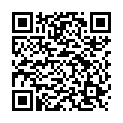|
|
|
| Module code: DFI-BK |
|
|
4V (4 hours per week) |
|
6 |
| Semester: 1 |
| Mandatory course: yes |
Language of instruction:
German |
Assessment:
Oral examination
[updated 20.12.2017]
|
DFI-BK (P610-0278) Computer Science, Master, ASPO 01.10.2018
, semester 1, mandatory course
KIM-BK (P222-0047) Computer Science and Communication Systems, Master, ASPO 01.10.2017
, semester 1, mandatory course
PIM-BK (P221-0048) Applied Informatics, Master, ASPO 01.10.2011
, semester 1, mandatory course
PIM-BK (P221-0048) Applied Informatics, Master, ASPO 01.10.2017
, semester 1, mandatory course
PIM-BK (P221-0048) Applied Informatics, Master, SO 01.10.2026
, semester 1, mandatory course
|
60 class hours (= 45 clock hours) over a 15-week period.
The total student study time is 180 hours (equivalent to 6 ECTS credits).
There are therefore 135 hours available for class preparation and follow-up work and exam preparation.
|
Recommended prerequisites (modules):
None.
|
Recommended as prerequisite for:
|
Module coordinator:
Prof. Dr. Maximilian Altmeyer |
Lecturer: Prof. Dr. Maximilian Altmeyer
[updated 09.08.2020]
|
Learning outcomes:
The students will be able to define the most important concepts from the computability and complexity theory and explain them using examples. They can understand the basic mathematical properties of hardware and software and are able to identify and apply theoretical concepts that solve practical problems. Students can explain the principal limitations to which certain problems are subject and analyze new problems with regard to these limitations.
The students can determine the complexity of problems regarding runtime and storage space and implement this knowledge to draw conclusions about the practical implementation of algorithms.
[updated 20.12.2017]
|
Module content:
1 Automata and languages
* Finite and infinite automata
* Regular expressions
* Kleene´s recursion theorem
* Quotient automaton
2 Computability theory
* Turing machines
* Church-Turing thesis
* Generators
* Decidability
* Reduction
3 Complexity theory
* Time complexity
* NP-completeness
* Space complexity
[updated 24.02.2018]
|
Teaching methods/Media:
Lecture, exercises, discussions
[updated 20.12.2017]
|
Recommended or required reading:
SIPSER Michael: Introduction to the theory of computation, Course Technology, 3rd edition, 2012
SAKAROVITCH Jacques: Elements of Automata Theory, Cambridge University Press, 2009
[updated 20.12.2017]
|

